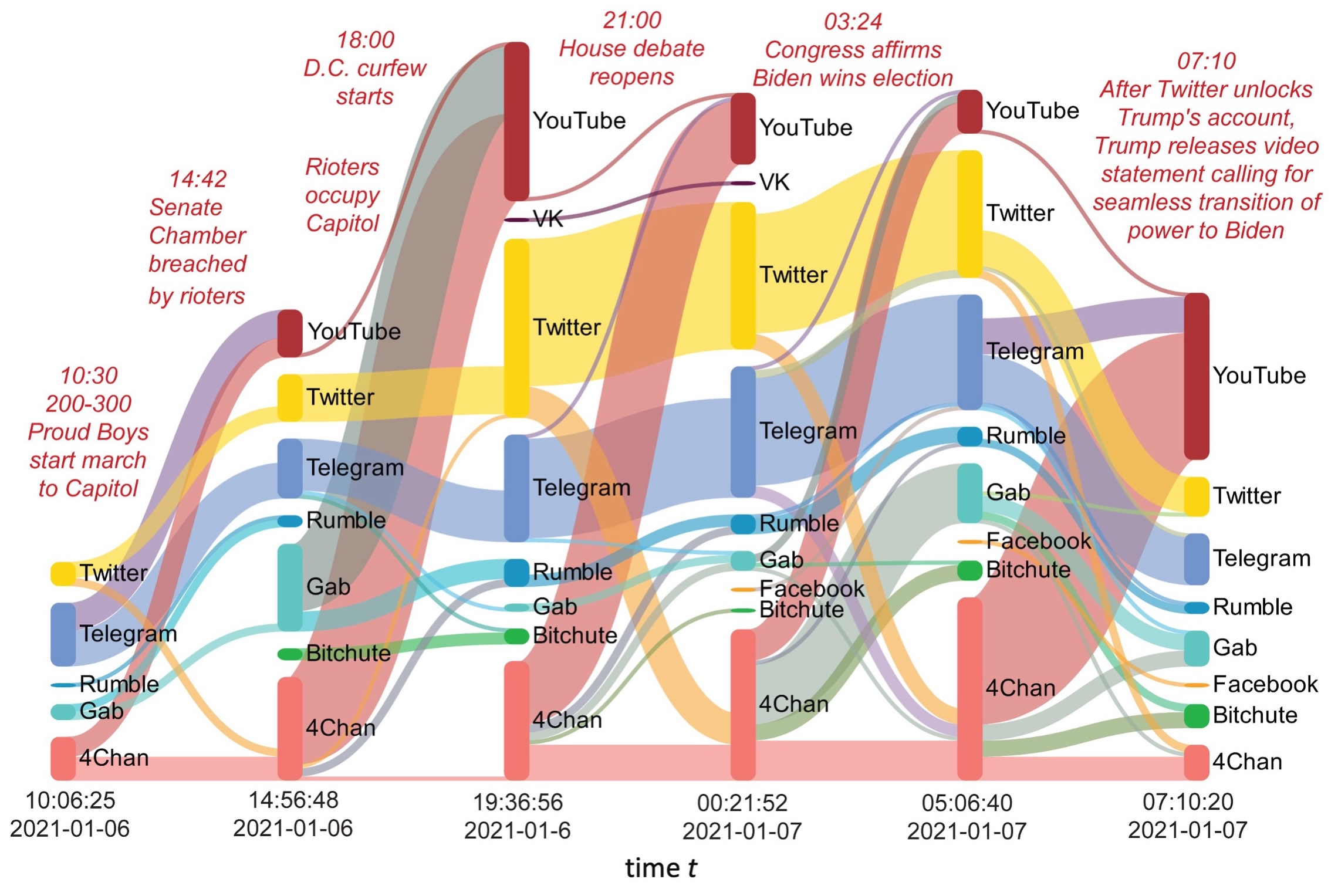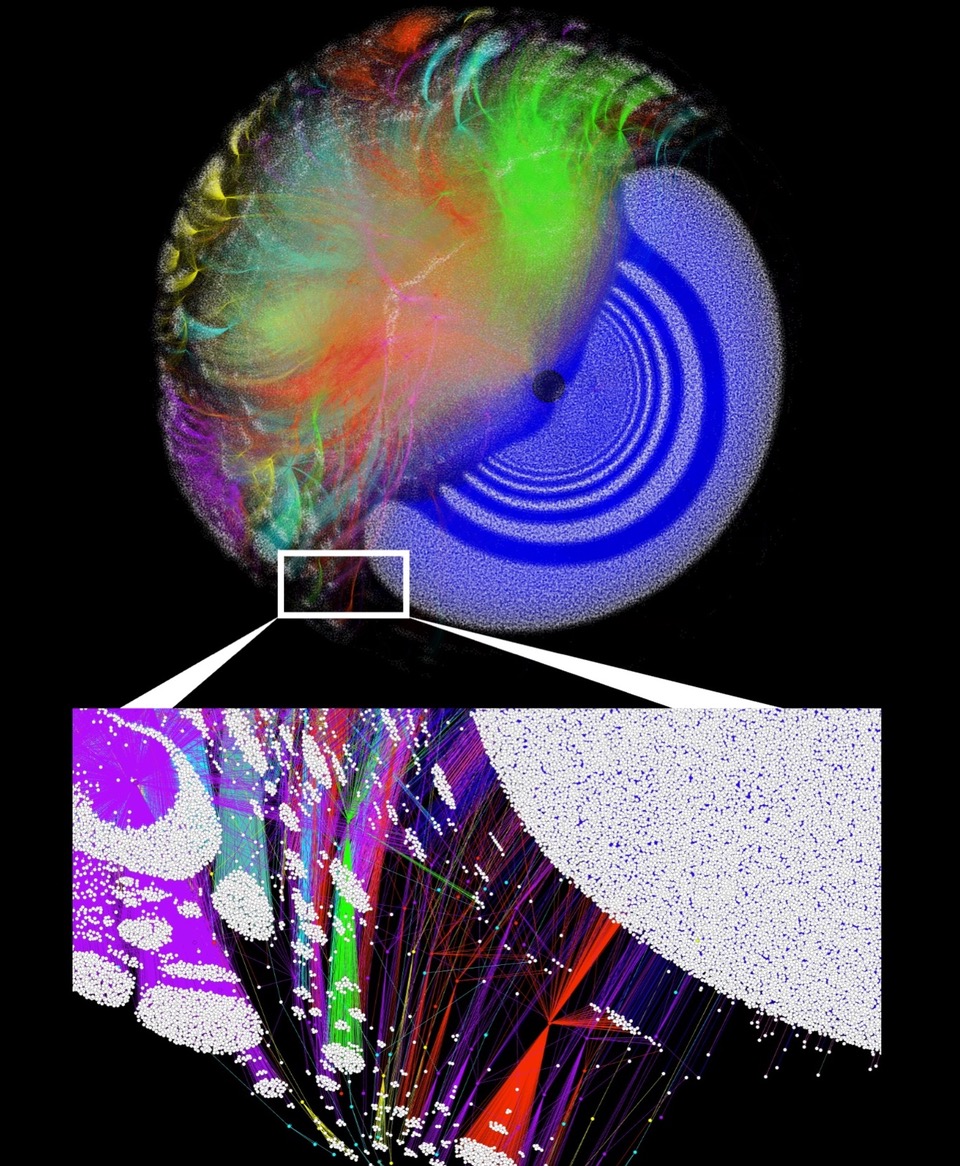WASHINGTON (April 17, 2024) – New research published today in the journal npj Complexity shows that online hate thrives because of a hidden inner web of many small social media platforms – not the few large platforms such as Twitter (X) and Facebook (Meta).
The study, led by researchers at the George Washington University, examined two real-world events – the 2021 January 6 attack on the U.S. Capitol and a 2023 mass shooting in Allen, Texas – to map out online chatter in the days leading up to and on the event itself. They found that for events like the January 6 attack, online hate first builds up across smaller social media platforms, such as Telegram, Discord and 4Chan. This leads to waves of hate that then spill over into the more familiar mainstream platforms that the rest of us use. This ecosystem of smaller and less regulated social media platforms helps hate networks steadily strengthen over time, bypassing mitigation measures and increasing their influence on larger mainstream social media outlets, the study finds.
It also raises serious doubts about policies that U.S. lawmakers are actively considering to mitigate harmful content, which are similar to the European Union’s policies in the Digital Services Act. Instead, the research shows that to protect society from online harms, it is essential to consider the entire ecosystem including the many smaller platforms.
The paper, “Adaptive link dynamics drive online hate networks and their mainstream influence,” was published in the inaugural issue of the journal npj Complexity, Nature’s new partner journal. If you would like to speak with Neil Johnson, GW physics professor and corresponding author of this paper, please contact GW Senior Media Relations Specialist Cate Douglass at cdouglass gwu [dot] edu (cdouglass[at]gwu[dot]edu).
gwu [dot] edu (cdouglass[at]gwu[dot]edu).
-GW-



